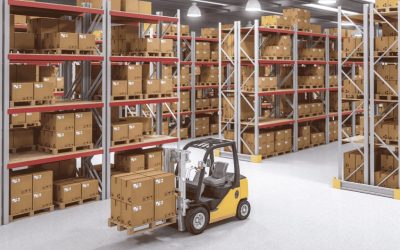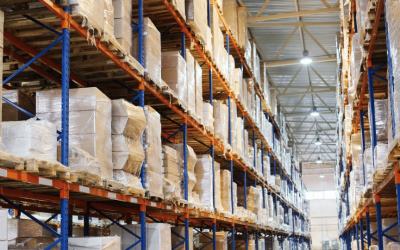By combining cutting-edge technologies such as artificial intelligence, robotics and the Internet of Things, warehouses are streamlining operations, increasing efficiency, and disrupting the logistics industry.
Traditional warehousing, with labor-intensive facilities that often struggled to keep up with demand, are a thing of the past. Smart warehouses are at the forefront of a revolution in logistics, allowing companies to optimize inventory management, cut operational expenses, and deliver products to customers with unprecedented speed and accuracy.
By harnessing automation, smart warehouses integrate cutting-edge technologies to automate routine tasks, helping achieve a perfect balance between human workers and technology. From automated picking and packing to optimized inventory checks and real-time tracking, smart warehouses use data to optimize performance and minimize errors.
In recent years, a number of warehouses have embraced automation, driven by a convergence of disruptive technologies such as the Internet of Things (IoT) and artificial intelligence (AI).
The Rise of Smart Warehousing
A smart warehouse is a warehouse equipped with cutting-edge technology for the automated management of logistics operations. Smart warehousing is based on real-time data collection and analytics, which provide unprecedented visibility and control over the inventory, traceability, and operational efficiency.
Another key driver of warehousing automation are IoT devices and sensors. According to a report from American consultancy firm McKinsey, the logistics industry is expected to have 15 billion connected IoT devices by 2025, which will track and compile accurate data on the location, status, and temperature of products stored in warehouses, improving the visibility of the supply chain and making management more efficient.
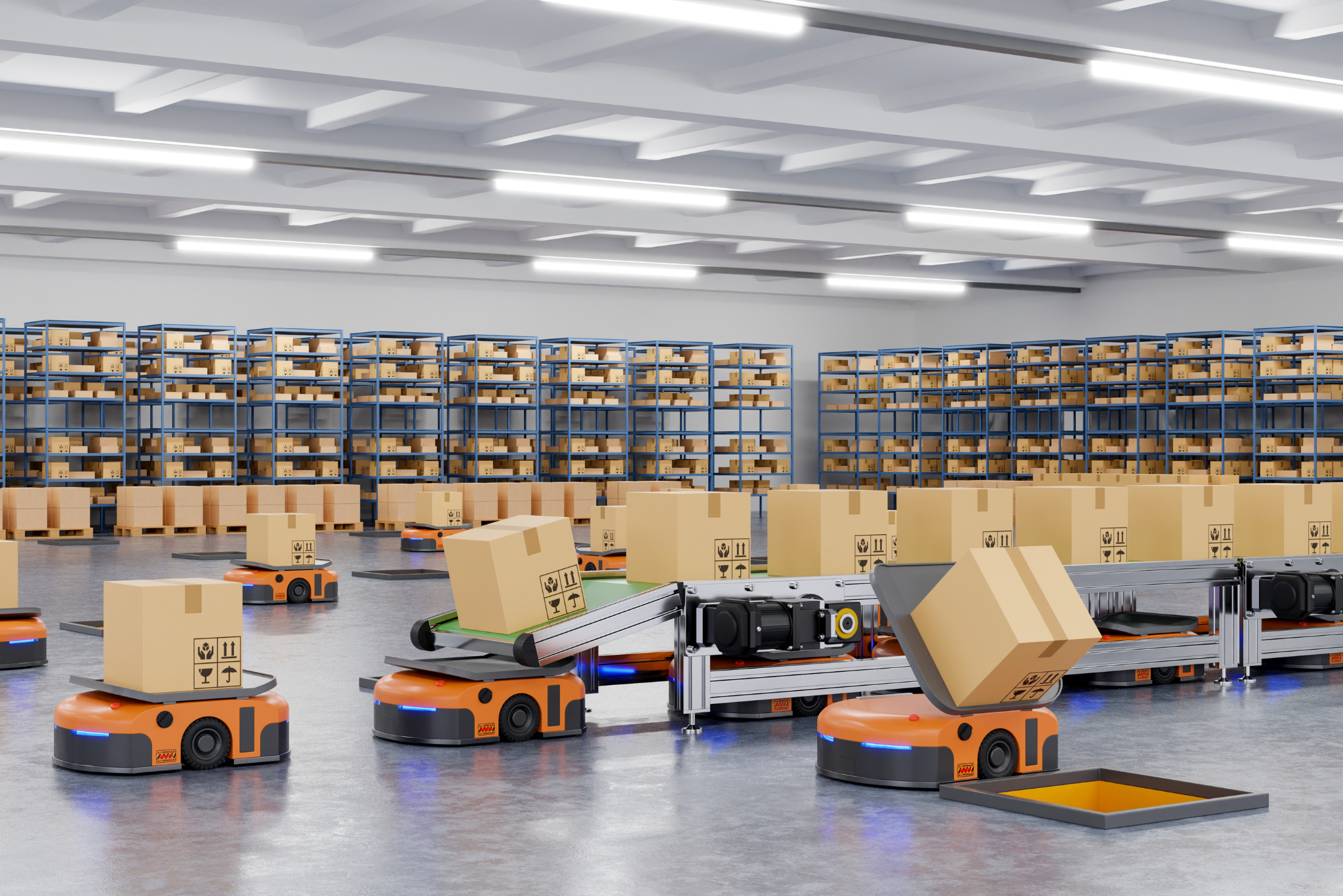 According to research from Grand View Research, the AI market in logistics is expected to grow at a CAGR of 42% until 2028.[/caption]
According to research from Grand View Research, the AI market in logistics is expected to grow at a CAGR of 42% until 2028.[/caption]
Another pillar of warehousing automation is AI, which enabled smart analytics on large volumes of data. AI algorithms can identify patterns, predict demand, and optimize delivery routes, which translates into cost savings and faster delivery times. According to research from Grand View Research, the AI market in logistics is expected to grow at a CAGR of 42% until 2028.
Innovations in Warehousing Automation
More and more warehouses are becoming automated thanks to recent technological breakthroughs, including:
Robots/Autonomous Vehicles
Robots and autonomous vehicles are transforming operational management inside warehouses thanks to their ability to perform tasks such as moving products, sorting merchandise and packing goods, increasing efficiency and cutting labor costs. According to projections from MarketsandMarkets, the robotics market in the logistics industry is expected to grow to more than $14.4 billion in value by 2026.
Drones
Companies are finding more and more applications for drones in logistics and warehousing management, as these aerial vehicles can perform inventory checks, monitor merchandise flows, and quickly deliver products in hard-to-reach areas. The drone market has become so important for the industry that it is projected to reach $13 billion in value in just three years, according to PwC.
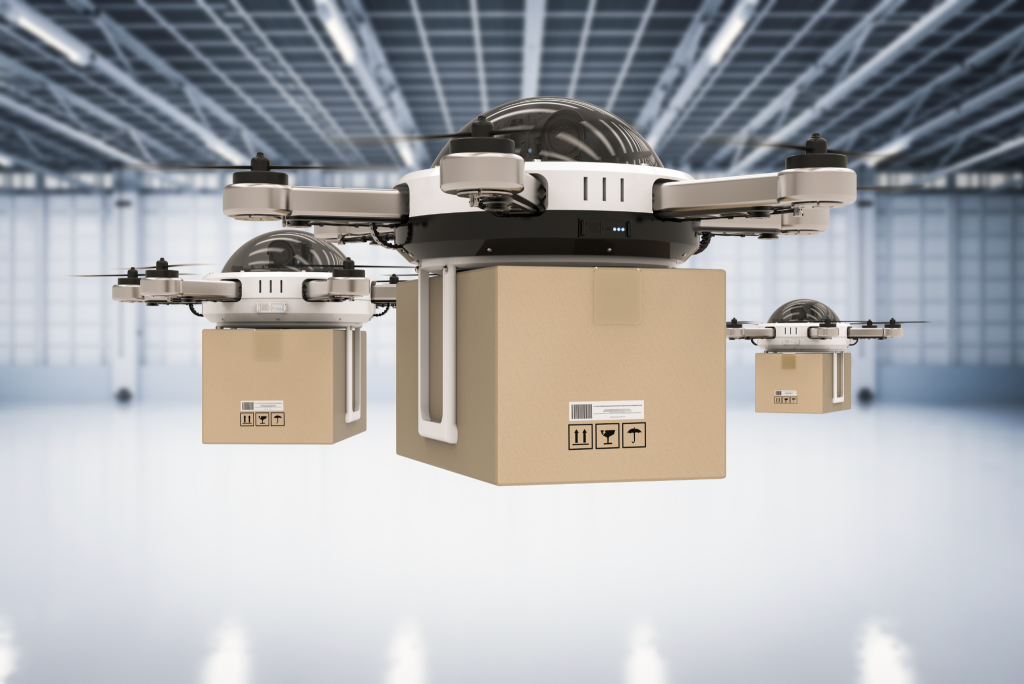
The drone market has become so important for the industry that it is projected to reach $13 billion in value in just three years, according to PwC.
Wearables/Augmented Reality
Wearables such as handheld scanners and smart glasses are being used in warehouses to increase operational efficiency and accuracy. As for AR, it helps workers select and store products, reducing mistakes and accelerating the process. According to a report from Research and Markets, the wearable segment in the logistics industry will grow at a CAGR of a 20% between 2023 and 2028.
Benefits of Warehousing Automation
Increased Accuracy and Traceability
Automated systems can accurately track every product throughout the supply chain, ensuring full traceability and reducing mistakes. According to a report from Zebra Technologies, 72% of companies plan to use real-time tracking and localization technologies to increase visibility of their logistics operations.
Storage Space/Capacity Optimization
AI algorithms can also optimize warehousing by analyzing how these products are stored, maximizing warehouse capacity and reducing related costs. According to MHI, 83% of logistics workers believe optimizing storage space is a key priority for warehouse management.
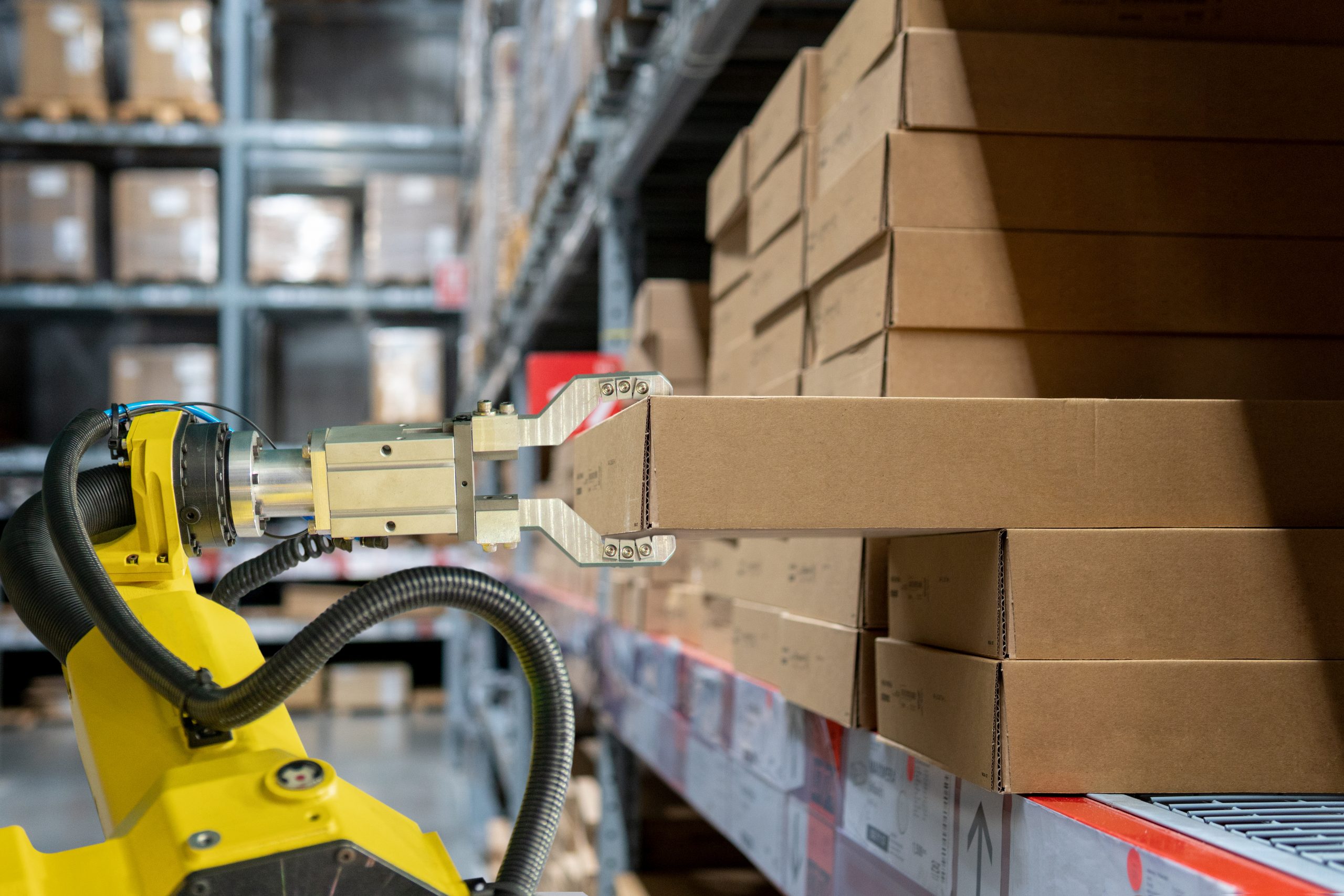
Robots and autonomous vehicles are transforming operational management inside warehouses thanks to their ability to perform tasks such as moving products, sorting merchandise and packing goods, increasing efficiency and cutting labor costs.
Increased Efficiency and Productivity
Process automation provides faster, more accurate operations, leading to increased productivity and faster response times. As reported by Deloitte, companies that implement automation technologies in their warehouses can improve productivity by as much as 45%.
Operational Cost Savings
Finally, by automating repetitive tasks and optimizing delivery routes, companies can significantly reduce operational expenses while minimizing waste and product loss. According to estimations by McKinsey, companies that deploy automation technologies in their warehouses can save up to 30% in costs.
Aerodoc Warehouse Managed Services (AWMS)
Aerodoc, a leading provider of international logistics and Importer of Record (IoR) services, offers cutting-edge warehousing solutions with its own Aerodoc Warehouse Managed Services (AWMS) solution from its warehouse in Miami, Florida.
Aerodoc COO Dan Zonnenschein explains that AWMS focuses on managing small volumes of high unit-value merchandise, turning Aerodoc into an ideal partner for companies that need a customized focus on inventory management.
“We try to manage as much merchandise as possible in our warehouse, but we also work with our global agent network to provide that service in all 180 countries where we operate, as well as local partners in Florida and other American cities,” Zonnenschein said, “our customers who have small volumes of high unit-value merchandise instead of the large volumes commonly seen in retail see in us an ideal operator because of our expertise, size, and toolkit. Furthermore, they know that their business is especially relevant for us.”
Aerodoc expanded its Miami warehouse in 2022 and plans to create separate lines of business for technology resellers and retail e-commerce, showing its adaptability and commitment to continue evolving its warehouse automation services and meet its customers’ changing needs.
To learn more about Aerodoc Warehouse Managed Services (AWMS), contact our team.



